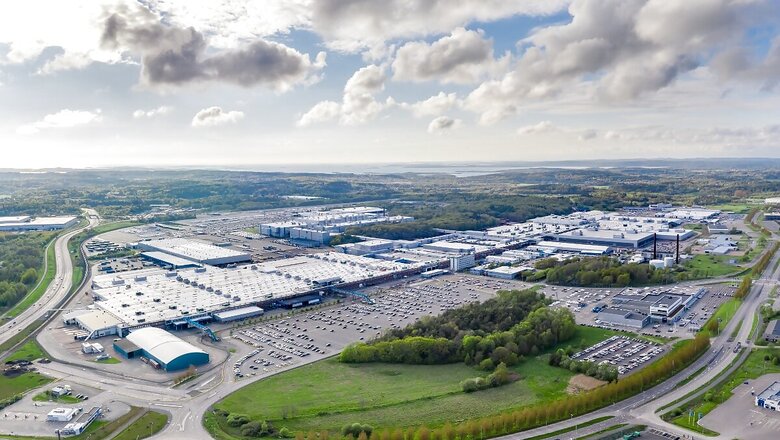
views
Volvo Cars has announced that its Torslanda site in Sweden is its first car manufacturing plant to reach fully climate-neutral status. This makes Torslanda the second plant in its overall manufacturing network to reach this status, after the Skövde engine plant in Sweden became climate-neutral in 2018. Volvo Cars counts a manufacturing site as fully climate neutral when it registers no net increase in the emission of greenhouse gases to the atmosphere as a result of the electricity and heating used by the plant.
The Torslanda plant, the company’s oldest, has been powered by climate neutral electricity since 2008. It now also has climate neutral heating. Half of the plant’s heating comes from biogas, while the other half is predominantly sourced from district heating through industrial waste heat.
“Establishing Torslanda as our first climate neutral car plant is a significant milestone," said Javier Varela, head of industrial operations and quality at Volvo Cars. “We are committed to having a climate neutral manufacturing network by 2025 and this achievement is a sign of our determination as we consistently work to reduce our impact on the environment."
Apart from becoming climate neutral, Torslanda also constantly reduces the amount of energy it uses. Targeted improvements in its operations during 2020 resulted in annualised energy savings of almost 7,000 megawatt-hour (MWh), equal to the annual energy usage of over 450 Swedish family homes.
Also Watch:
In coming years the plant plans to make further efficiency upgrades to the lighting and heating systems, among other things, which should result in additional annual energy savings of around 20,000 MWh by 2023. These energy savings are part of a wider ambition for Volvo Cars to reduce energy usage per car produced in its manufacturing network by 30 per cent in 2025.
Yet the plan goes beyond addressing tailpipe emissions through all-out electrification and also seeks to tackle carbon emissions in the company’s wider operations, its supply chain and through recycling and reuse of materials by embracing the circular economy.
Read all the Latest News, Breaking News and Coronavirus News here. Follow us on Facebook, Twitter and Telegram.




















Comments
0 comment